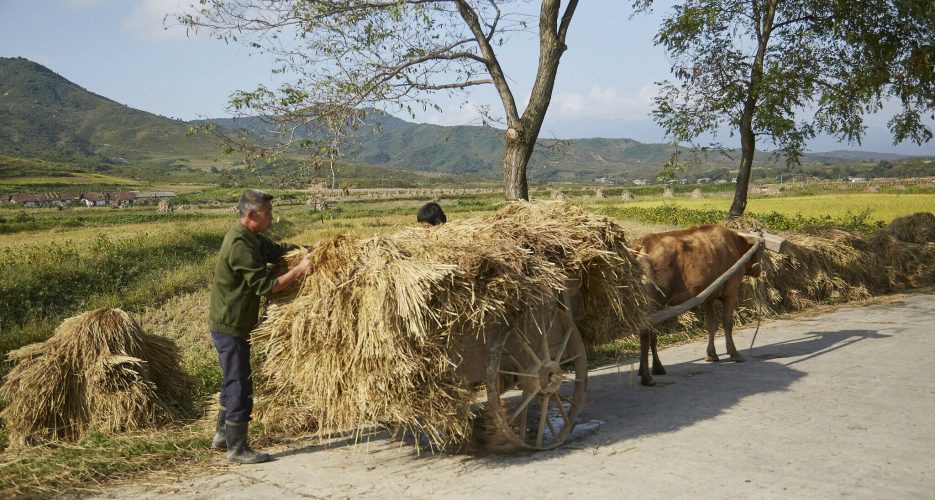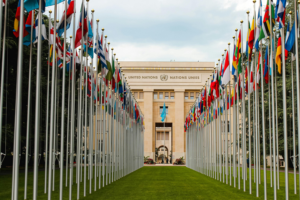“In order to improve the lives of the people, Kim Il-sung visited the farmers and told them to grow more rice.” Exhausted and weathered from several weeks of propaganda training in the DPRK, I found myself unconsciously slipping into a state of complacence with the tour guide’s narration. North Korea’s Three Revolutions Exhibition follows suit with many of the other foreigner-friendly sights around Pyongyang. Kim Il-sung’s greatest fans, staunchly nationalistic and frustratingly vague, enthusiastically narrate the tours. I withheld the urge to inquire further about the mental capacity of Korean farmers, who were apparently unable to make the connection between national hunger and crop yield.
It goes without saying that North Korea’s agricultural sector is underdeveloped. The country itself has fallen victim to a combination of bad luck and poor agricultural policies on numerous occasions at the expense of millions of lives. The challenges that arise as a result of poor policy not only include a shortage of food staples, but also extend to public health and pollution concerns. Low crop yields have less to do with the reasoning ability of farmers and are more often tied to a wide variety of causes such as unforgiving weather conditions, or material and electrical shortages. Public health and environmental concerns can be attributed to a mixture of shortsighted policy and logistical circumstance. At the same time, we should not too easily scoff at the efforts the regime has made to cope with the challenges facing its citizens.
“In order to improve the lives of the people, Kim Il-sung visited the farmers and told them to grow more rice.” Exhausted and weathered from several weeks of propaganda training in the DPRK, I found myself unconsciously slipping into a state of complacence with the tour guide’s narration. North Korea’s Three Revolutions Exhibition follows suit with many of the other foreigner-friendly sights around Pyongyang. Kim Il-sung’s greatest fans, staunchly nationalistic and frustratingly vague, enthusiastically narrate the tours. I withheld the urge to inquire further about the mental capacity of Korean farmers, who were apparently unable to make the connection between national hunger and crop yield.
It goes without saying that North Korea’s agricultural sector is underdeveloped. The country itself has fallen victim to a combination of bad luck and poor agricultural policies on numerous occasions at the expense of millions of lives. The challenges that arise as a result of poor policy not only include a shortage of food staples, but also extend to public health and pollution concerns. Low crop yields have less to do with the reasoning ability of farmers and are more often tied to a wide variety of causes such as unforgiving weather conditions, or material and electrical shortages. Public health and environmental concerns can be attributed to a mixture of shortsighted policy and logistical circumstance. At the same time, we should not too easily scoff at the efforts the regime has made to cope with the challenges facing its citizens.
Try unlimited access
Only $1 for four weeks
-
Unlimited access to all of NK News: reporting, investigations, analysis
-
Year-one discount if you continue past $1 trial period
-
The NK News Daily Update, an email newsletter to keep you in the loop
-
Searchable archive of all content, photo galleries, special columns
-
Contact NK News reporters with tips or requests for reporting
Get unlimited access to all NK News content, including original reporting, investigations, and analyses by our team of DPRK experts.
Subscribe
now
All major cards accepted. No commitments – you can cancel any time.










